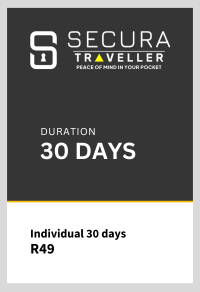Jozi My Jozi is Transforming Local Tourism Through Urban Innovation

Dawn Robertson has led many amazing initiatives in the tourism industry throughout her career, including currently leading the G20 Summit workstream as the Tourism and Creative Economy Catalyst for Jozi My Jozi. This involves positioning Joburg as Africa’s Creative Capital by showcasing the city’s economic development opportunities and position as a cultural powerhouse capable of shaping global trends.
“Attracting some of the world's most influential leaders and decision-makers, the G20 platform is seen as an opportunity to attract high-value tourism and investment,” Dawn explains. “We are leveraging Joburg’s hosting of the G20 Summit to amplify Jozi My Jozi’s mission of urban transformation and social inclusion.”
Jozi My Jozi was founded in 2023 as a collaborative effort between business leaders, creative minds, and community stakeholders – a coalition of the willing – to address the challenges of urban decay, failing infrastructure, and social fragmentation that have plagued the city of Johannesburg in recent years.
Inspired by global examples of urban renewal, such as New York’s iconic “I Love NY” campaign, Jozi My Jozi aims to ignite hope and inspire sustainable solutions through partnerships with major corporates including Anglo American, Nando’s, FNB, Absa, Standard Bank, Wits, Maharishi Invincibility Institute, Altron and Microsoft, alongside grassroots initiatives.
The company focuses on five key areas to drive meaningful change and revitalise Joburg’s inner city:
- Enhancing safety measures through initiatives such as clean-up blitzes, and improved security infrastructure.
- Establishing educational hubs and promoting learning opportunities to empower communities.
- Addressing social challenges, including homelessness and poverty.
- Reviving Joburg’s creative and tourism economy and vibrant cultural scene by promoting art installations, murals, and inventive spaces.
- Encouraging commercial and property development through business reinvestment to stimulate economic growth.

Addressing tourism industry challenges in the inner-city
Jozi My Jozi’s five focus areas also accurately summarise the inner city’s current challenges. “The main issue are the concerns around safety and security. We need to change the perception that Joburg is dangerous, it discourages visitors from exploring urban attractions,” Dawn points out.
Next is the ageing and inadequate infrastructure in the inner city, including poorly maintained roads, public spaces, and transport systems. This reduces the appeal of Joburg as a tourist destination. Dawn explains that, as a result, there’s a lot of uneven tourism development. “Initiatives are concentrated in wealthier areas like Sandton, while the inner city struggles to attract investment and visitors. This geographical imbalance limits opportunities for inclusive growth and community benefits.”
In addition, small tourism businesses in Joburg face barriers such as limited access to funding, high operational costs, and regulatory hurdles, which were exacerbated by the COVID pandemic.
Lastly, Jozi My Jozi is hoping to address the lack of effective marketing for inner-city attractions and an insufficient emphasis on showcasing cultural landmarks and heritage sites, by tapping into global travel trends. This includes supporting the tourism industry to:
- Tap into the Afro-tourism surge, attracting travellers seeking cultural and historical connections to the continent.
- Utilise cultural heritage products (such as ‘Education Town’) to resonate with the widespread demand for authentic community-rooted experiences.
- Create programmes targeting younger audiences (such as Adopt a Project), to enhance impact-driven tourism.
- Expand products to underutilised regions (beyond Cape Town and the Kruger National Park) by promoting secondary cities and rural areas with unique cultural and natural attractions.
- Align offerings to sustainable and responsible tourism, such as eco-friendly accommodation and off-the-beaten-track experiences, as demand rises for eco-conscious travel.
- Improve infrastructure and policy – the new remote work visa is expected to spur demand for long-stay accommodation, and initiatives like the Trusted Tour Operator Scheme (TTOS) aim to boost arrivals from India and China.
“By addressing these challenges through collaboration between government, private stakeholders, and communities, Joburg’s inner-city tourism has significant potential for growth,” Dawn impresses.

Redefining creative tourism in South Africa
This accurately sums up Dawn’s career, merging tourism, culture, and urban policy to make Johannesburg a destination that blends historical significance with modern innovation. “Tourism is a tool to revitalise urban spaces and promote cultural heritage,” she notes, referring back to when she was first introduced to the industry during the 2010 FIFA World Cup. At the time, she headed up the Gauteng Department of Sports, Arts and Culture and was the Programme Manager for the Gauteng 2010 FIFA World Cup Technical Task Team, where she coordinated critical infrastructure, legislative compliance, and legacy programmes.
Dawn then used the lessons she gained from this major international event to drive urban tourism strategies as CEO of Gauteng Tourism Authority (2010-2015). “This included initiatives like the Hop on, Hop off tour buses, and the Gauteng Signature Collection – a collaboration with industry partners to curate a portfolio of tourism products that would enhance the province’s appeal and disperse visitors beyond the traditional hotspots,” Dawn shares. She was also involved in the development of South Africa’s first DMMO Major Events Strategy and Framework (supporting events including Meetings Africa and mega festivals like Joy of Jazz and the SANSUI Summer Cup).
From 2016 to 2023, Dawn was the CEO at Constitution Hill, where she was responsible for redefining heritage tourism. “We transformed the site into a youth-centric cultural destination by democratising access and hosting more festivals, events, and partnerships (such as AFROPUNK and the Human Rights Festival),” she explains. “Our community engagement prioritised ‘sharing power’ to enable local communities and ensure heritage spaces reflected diverse narratives.”
During this time, Dawn was named as one of the Top Fifty Influencers globally who impact the attractions business with their passion, innovation, and creativity to improve the industry.
“I believe my journey in the tourism industry underscores the interplay of policy, innovation and cultural relevance. A major focus has been addressing systemic issues with inclusive solutions, such as uniform service standards across the value chain to enhance visitor satisfaction, better skills retention, youth-focused tourism, and reducing bureaucratic hurdles to attract investment,” she says. “Tourism must be industry-led, but government-supported, with a focus on empowerment.”
Dawn credits her success to her time spent at CreateSA; a multi-million-rand project commissioned by South Africa’s Department of Labour to close the skills development gaps in the creative industries. “As the CEO, I oversaw the design, development and implementation of 14 entirely new qualifications in creative fields, as well as the alignment of education with industry needs,” she explains. “The initiative aimed to formalise pathways for emerging talent, creating careers in sectors adjacent to tourism, such as hospitality, events, and heritage.”
Prioritising partnerships for collective success
Tourism acts as a catalyst for development across sectors like hospitality, transportation, and retail. Dawn believes the city can enhance its competitiveness through strategic partnerships. “It allows us to pool our resources and create unique experiences that differentiate Joburg – and the broader country – from competitors,” she explains. “These partnerships can also improve visitor experiences and enhance customer satisfaction.”
As a SATSA member, Jozi My Jozi benefits significantly from the Association’s resources and support. “Specific opportunities include networking and marketing access, which helps facilitate this kind of collaboration,” Dawn notes. “Direct introductions to buyers and suppliers also enhance our visibility in the industry.”
As such, Dawn’s advice to the industry is to prioritise partnering with locals and SMMEs. “Joining networks like SATSA for credibility and market access, leveraging major events and Afro-tourism trends by curating unique cultural experiences, and driving sustainability will position the entire industry for success.”

Jozi My Jozi is a proud partner of SATSA's 2025 "Spread the Love" Conference.
Johannesburg, 9 - 11 September 2025

























